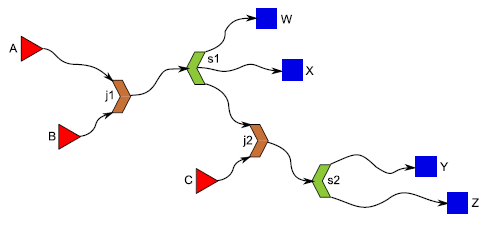TR2007-034
SocialMotion: Measuring the Hidden Social Life of a Building
-
- , "SocialMotion: Measuring the Hidden Social Life of a Building", International Symposium on Location- and Context-Awareness (LoCA), September 2007, vol. 4718, pp. 85-102.BibTeX TR2007-034 PDF
- @inproceedings{Wren2007sep,
- author = {Wren, C. and Ivanov, Y. and Kaur, I. and Leigh, D. and Westhues, J.},
- title = {{SocialMotion: Measuring the Hidden Social Life of a Building}},
- booktitle = {International Symposium on Location- and Context-Awareness (LoCA)},
- year = 2007,
- volume = 4718,
- series = {Lecture Notes in Computer Science},
- pages = {85--102},
- month = sep,
- isbn = {978-3-540-75159-5},
- url = {https://www.merl.com/publications/TR2007-034}
- }
- , "SocialMotion: Measuring the Hidden Social Life of a Building", International Symposium on Location- and Context-Awareness (LoCA), September 2007, vol. 4718, pp. 85-102.
-
Research Area:

Abstract:
In this paper we present an approach to analyzing the social behaviors that occur in a typical office space. We describe a system consisting of over 200 motion sensors connected in a wireless network observing a medium-sized office space populated with almost 100 people for a period of almost a year. We use a tracklet graph representation of the data in the sensor network, which allows us to efficiently evaluate gross patterns of office-wide social behavior of its occupants during expected seasonal changes in the workforce as well as unexpected social events that affect the entire population of the space. We present our experiments with a method based on Kullback-Leibler metric applied to the office activity modelled as a Markov process. Using this approach we detect gross deviations of short term office-wide behavior patterns from previous long-term patterns spanning various time intervals. We compare detected deviations to the company calendar and find and provide some quantitative analysis of the relative impact of those disruptions across a range of temporal scales. We also present a favorable comparison to results achieved by applying the same analysis to email logs.
Related News & Events
-
NEWS International Symposium on Location- and Context-Awareness (LoCA) 2007: publication by MERL researchers and others Date: September 20, 2007
Where: International Symposium on Location- and Context-Awareness (LoCA)
Research Area: Computer VisionBrief- The paper "SocialMotion: Measuring the Hidden Social Life of a Building" by Wren, C., Ivanov, Y., Kaur, I., Leigh, D. and Westhues, J. was presented at the International Symposium on Location- and Context-Awareness (LoCA).